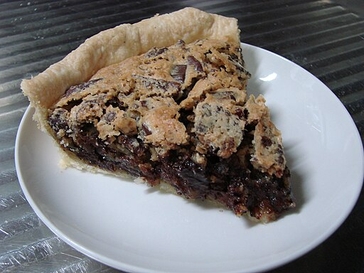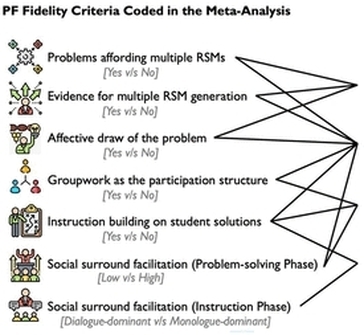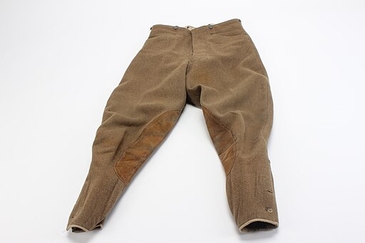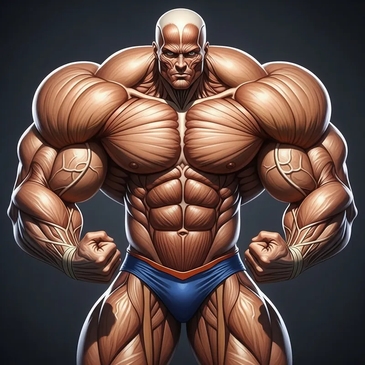The Checker Maven
The World's Most Widely Read Checkers and Draughts Publication
Bob Newell, Editor-in-Chief
Published every Saturday morning in Honolulu, Hawai`i
Noticing missing images? An explanation is here.
Easy As Pie
We've all heard the expression "easy as pie" to refer to something that is indeed very easy. But finding the origins of this expression is not quite as easy as pie.
There are a couple of theories. In 1855 the expression "nice as pie" appeared in print. In 1884 Mark Twain wrote "polite as pie." In 1886 "it's like eating pie" was found in Sporting Life. Finally in 1887 we see "it's as easy as pie" in the Newport Mercury.
Another idea traces back to pre-Reformation England, when the rules for computing the date of Easter were called "Pie." The theory goes on to speculate from the context that "Pie" originally meant something overly complicated and morphed into something that was in fact very easy. This seems a bit of a stretch.
And the most unusual idea of all relates the expression to the Maori word "pai" which means "good" and perhaps led to the Australian expression, in the 1920s, "pie at" or "'pie on" which meant "to be good at something" which was itself perhaps "easy as pie." This also seems a bit contrived.
We'll go with the explanations from the 1800s, and present a speed problem which is indeed as easy as pie.
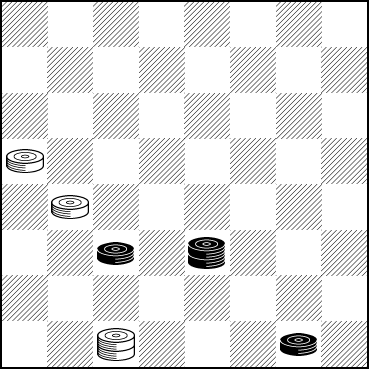
BLACK
Black to Play and Win
B:W20,16,K3:B11,1,K10
Most players will solve this instantly. See if you solve it at first glance. Novices may have to think a bit but also should be able to get it. No matter your status, treat yourself to a piece of pie after you've verified your solution by clicking on Read More.![]()
Problem Composing Contest 63: Mystery Theme

Public Domain Pictures CC0
Who doesn't love a good mystery? Who, at one time or other hasn't fancied being a detective and coming up with the cleverly hidden solution to some heinous crime?
Today we're pleased to present a very special entry in Mr. Bill Salot's long-running series of outstanding checker problem composition contests, a series he calls the Unofficial World Championship. Each contest has featured a theme, but today, we're not revealing what it might be. It's a "mystery" theme. Can you solve all the problems and figure out the theme? Thankfully, no terrible crime has taken place but the mystery is nonetheless intriguing, fascinating, and perhaps even worthy of Mortimer Holmes himself (as featured in our series, The Checker Murders)!
To start you out, here's an example. Willie Ryan wrote that this problem, published by George H. Slocum in 1894, was "one of the most exquisite stroke problems on the record." The problems entered in Contest 63 demonstrate some of the same characteristics.
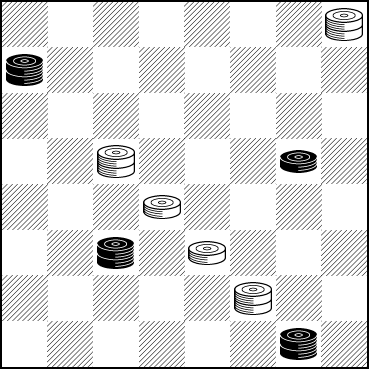
WHITE
White to Play and Win
W:WK4,K14,18,23,K27:BK5,16,K22,K32
Can you get it? You can always click on Read More to see the solution, but we won't give away the Mystery Theme. Be sure to go to the contest page to find our three challenging contest problems. Don't forget to cast your vote for the one you like best.![]()
PS-I or I-PS
In today's Checker School column, we're going full-bore academic. Here's the abstract from a recent paper entitled When Problem Solving Followed by Instruction Works: Evidence for Productive Failure by Tanmay Sinha and Manu Kapur.
"When learning a new concept, should students engage in problem solving followed by instruction (PS-I) or instruction followed by problem solving (I-PS)? Noting that there is a passionate debate about the design of initial learning, we report evidence from a meta-analysis of 53 studies with 166 comparisons that compared PS-I with I-PS design. Our results showed a significant, moderate effect in favor of PS-I (Hedge's g 0.36 [95% confidence interval 0.20; 0.51]). The effects were even stronger (Hedge's g ranging between 0.37 and 0.58) when PS-I was implemented with high fidelity to the principles of Productive Failure (PF), a subset variant of PS-I design. Students' grade level, intervention time span, and its (quasi-)experimental nature contributed to the efficacy of PS-I over I-PS designs. Contrasting trends were, however, observed for younger age learners (second to fifth graders) and for the learning of domain-general skills, for which effect sizes favored I-PS. Overall, an estimation of true effect sizes after accounting for publication bias suggested a strong effect size favoring PS-I (Hedge's g 0.87)."
If you managed to follow all of that, you might wish to seek out the full paper, which is easily found on-line and is freely available (https://journals.sagepub.com/doi/10.3102/00346543211019105 CC4 license). But what's this got to do with our game of checkers?
As it turns out, quite a bit. Should we study a concept in a checker book (like, for instance, fourth position) and then solve problems based on that theme? Or should we try some problems first, likely encountering failure, and only then go back and study the tutorial material? The paper suggests the latter for all but the youngest age groups.
Well, then, let's put this into practice, shall we? Here's a problem from Richard Pask's best-selling (in checker book terms, at least) Checkers for the Novice. If you're an expert player, you'll find the problem easy and you won't need the instruction. But for the rest of us --- what learning method will work best?
Choose your approach. See what resonates with you. You can actually experiment with the entire book, if you wish.
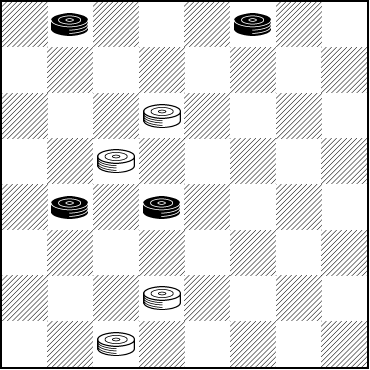
WHITE
White to Play and Win
W:W10,14,26,30:B1,3,17,18
We won't give the solution here; it's Diagram 57, part of Lesson 11 in Mr. Pask's book. If by any chance you don't have a copy, it's a free download.
So, what method did you choose? What was the easiest way for you to learn the concept demonstrated in this problem? Book first? Problem first? Do let us know what you think.![]()
4th of July 2022
Although this column is being written some weeks in advance, it looks as though 4th of July 2022 is going to be a vast improvement over the past Covid years. Although we know that Covid will never be completely gone, we're back to at least some semblance of normal, and there will be 4th of July parades and outdoor celebrations. And while the world situation and the economy could be better, we're happy for what we have, and most of all we're happy and proud to be Americans and we love celebrating the anniversary of our nation's independence.
On such holidays we often turn to another American patriot, the great champion Tommie Wiswell. Today we have a problem he called Blitz, and you'll see why when you solve it.
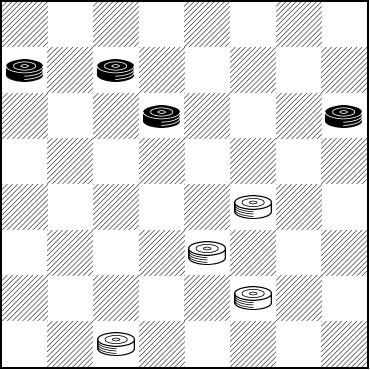
WHITE
White to Play and Win
W:W19,23,27,30:B5,6,10,12
See if you can win it. You don't have to play "blitz" --- take all the time you want, but when you're finished, definitely blitz your mouse over to Read More to see the solution.![]()
Bad Teacher

Bad Teacher was a terrible movie from the year 2011 (the image above is illustrative and not from the film). We certainly don't recommend it, but the idea does lead us nicely into today's Checker Maven column.
LARNER TRIES TO TEACH
"This is the way," said Larner impatiently as he persisted in rapidly solving a problem without giving the boastful Skittle a trial.
Galileo once said, "You cannot teach a man anything; you can only help him to find it within himself." How could Skittle learn without being permitted to make mistakes and then correct them?
Since 1775, due largely to the experiments of Johann Pestalozzi, the science of education has been based on problem solving or reasoning, rather than on memorizing. This Swiss educationalist combined manual with mental exercises. Teachers merely develop your latent power. You learn mainly by practice!
The preceding short selection is from Andrew J. Banks' eclectic book, Checker Board Strategy. It seems that Mr. Larner, whoever he was, is an example of a bad teacher. Is it true, for our game of checkers, that we learn mainly by practice, and that teachers merely develop our latent power?
That could be the subject of an extended and interesting debate. But for the moment, let's get some practice, with today's rather easy problem. It's really at the beginner level but more experienced players should see if they can solve it with just a quick glance.
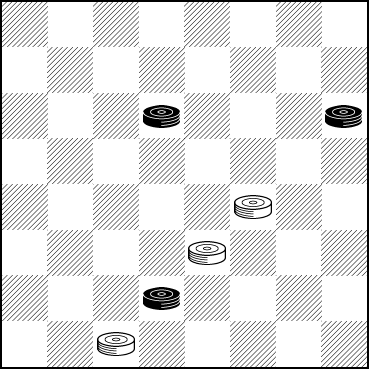
WHITE
White to Play and Win
W:W19,23,30:B10,12,26
Did you solve it rapidly? Did it provide any sort of useful practice? We surely don't have to teach you that you can click on Read More to verify your solution.![]()
The June Bug

PICRYL CC0
It's the month of June and in some parts of North America it's the "June Bug" season. The June Bug is related to the scarab, and there are some 100 varieties of this insect. It makes a brief appearance usually in May and June each year, hence the name "June Bug" (or sometimes "May Bug"). They are widely considered to be a pest harmful to trees and lawn.
What's that got to do with checkers, and our (more or less) monthly speed problem? Take a look at the diagram below.
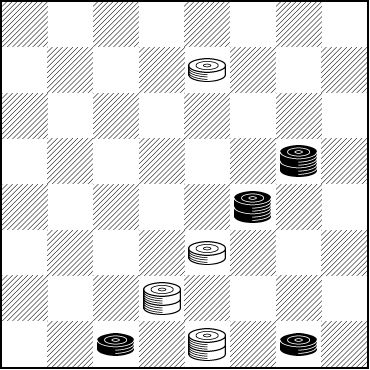
BLACK
Black to Play and Win
B:WK2,K7,10,26:B1,3,K14,K17
So, you say, it's pretty straightforward, right? What's the point of a problem with such an "obvious" solution? Well, then--- this one could indeed "bug" you if you get it wrong. Experienced players won't have any difficulty. But the rest of us might, shall we say, get, um, bitten[1].
Solve it quickly and then let your mouse crawl over to Read More to see the solution.
[1] June bugs don't actually bite humans, but allow us this small artistic liberty.![]()
Contest 62: Double Breeches
Today we won't go into the difference between breeches and britches, but we will mention that breeches are pants (or if you like, pantaloons) that cover the, um, posterior. Today that's true of most if not all pants.
What then, are double breeches? In terms of pants, we can't really say, but our Research Department did point out that the word breeches is what's known as a double plural. In old English, broc was a word which had a plural form of brec. In time the word evolved and added the usual -(e)s suffix and thus became the double plural, breeches.
If that's just a bit too complicated, fortunately in checkers double breeches has a very specific and easy to understand meaning, as you'll see in Bill Salot's 62nd World Championship Problem Composing Contest, which has double breeches as its theme. Access the contest problems here.
To get you started, here's a sample problem illustrating the contest theme. It's by grandmaster composer Ed Atkinson and was the winner of Contest 33 in June, 2017.
BLACK
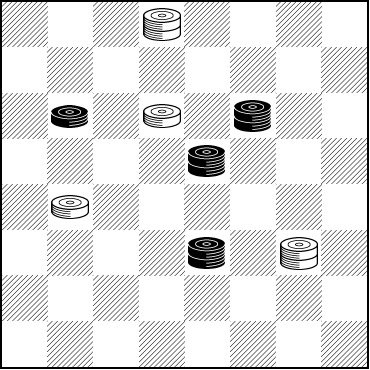
WHITE
White to Play and Draw
W:WK2,10,17,K24:B9,K11,K15,K23
After you've enjoyed solving this problem, click on Read More to see the solution, and then go to the contest page to cast your vote for your favorite among four additional problems.![]()
Warm Up
It's the beginning of May, and in the Northern Hemisphere, the weather should be warming up, likely something very welcome to those of you in colder climes.
Along those lines, today we have a speed problem that is itself in the nature of a "warm up" of the mental type. It's quite easy, and may be something of a good starter to get your brain into checker mode at the start of an evening's play or study.

NIH Image Gallery CC0
An experienced player will solve it in a couple of seconds; novices may have to think a bit, but in any case, it's good fun.
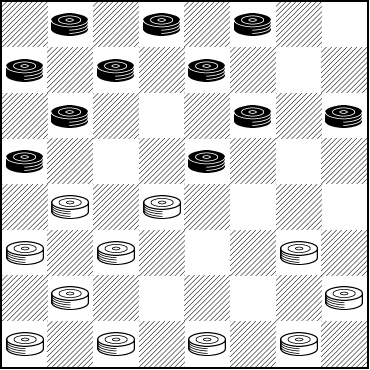
WHITE
White to Play and Win
W:W17,18,21,22,24,25,28,29,30,31,32:B1,2,3,5,6,7,9,11,12,13,15
Were you able to get it? We thought so, but still, warm up your mouse by clicking on Read More to check your play.![]()
Contest 61: Virile Variations
The latest entry in Bill Salot's long-running series of top-notch problem composing competitions is titled Virile Variations and features devious problems with "fake" solutions that conceal the real solution. The idea is that the solver will be misled into thinking the fake solution, which is both appealing and almost but not quite correct, is the real one.
A generous selection of six settings make up the contest entries, which you can quickly access by going to contests.checkermaven.com.
As an introduction, here's a sample problem from 1892, attributed to joint authors G. H. Slocum and C. Hefter.
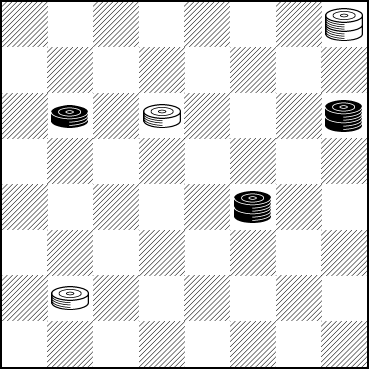
WHITE
White to Play and Draw
W:WK4,10,25:B9,K12,K19
Give this one a try, click on Read More to see the solution (and the fake solution), and then go on over the contest page for six more challenging problems ... and be sure to vote for your favorite!![]()
There's More Than One Way To Do It

MIT License
There's a sort of a sport played by computer nerds called Vim Golf. Now, bear with us for a moment.
Vim is a famous and venerable text editor used mostly on Unix systems but on many other systems as well. It is unique and has its faithful adherents. It's fast and is famous for being able to accomplish tasks with a minimum of keystrokes. Enter Vim golf.
In Vim golf, players solve an often challenging editing problem, using nothing more than a stock version of the Vim editor. There's more than one way to do it, but the challenge is to solve the problem--- put the ball in the hole, if you will--- with a minimum number of (key)strokes. Just like golf, only very techie. It's a lot of fun--- if that's your sort of thing.
In checkers, too, there is often more than one way to play a position. So we introduce draughts golf with a problem sent along by regular contributors Lloyd and Josh Gordon of Toronto. The position below has several ways for Black to win, but there is a best way.
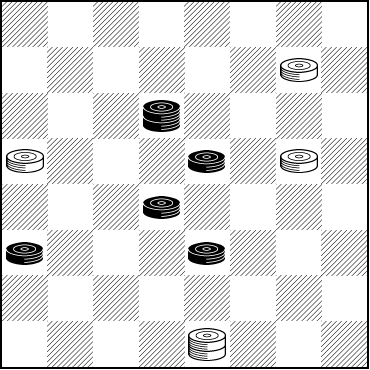
BLACK
Black to Play and Win
B:WK2,17,20,25:B10,12,15,18,K23
Black is a piece up and absent any mitigating factors should of course win. But can you win quickly? Can you find the shortest win? Can you find all of them? Maybe you can't get a hole in one, but can you make par? Take a "shot" and then club Read More to see the solution.![]()
The Checker Maven is produced at editorial offices in Honolulu, Hawai`i, as a completely non-commercial public service from which no income is obtained or sought. Original material is Copyright © 2004-2026 Avi Gobbler Publishing. Other material is public domain, AI generated, as attributed, or licensed under CC1, CC2, CC3 or CC4. Information presented on this site is offered as-is, at no cost, and bears no express or implied warranty as to accuracy or usability. You agree that you use such information entirely at your own risk. No liabilities of any kind under any legal theory whatsoever are accepted. The Checker Maven is dedicated to the memory of Mr. Bob Newell, Sr.
